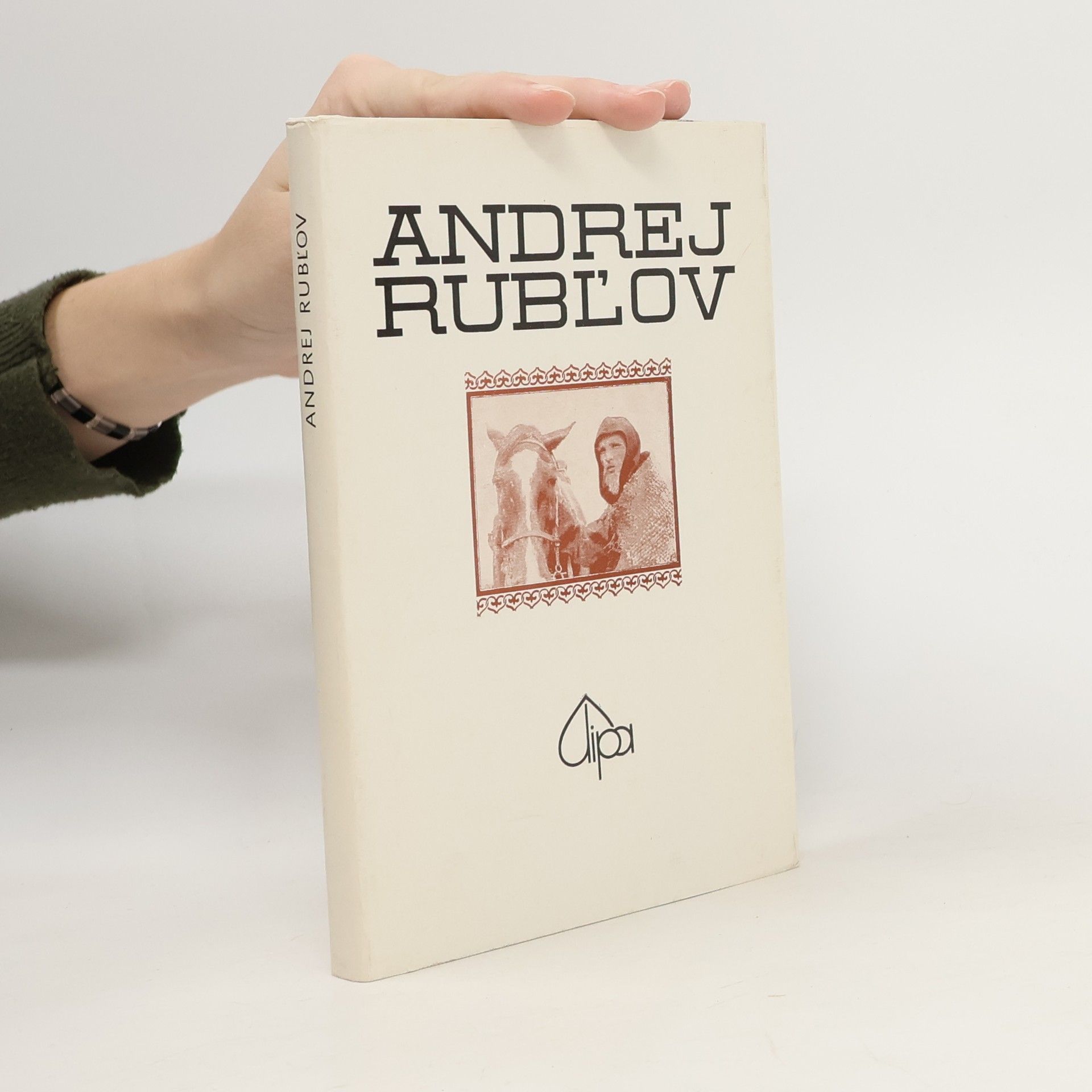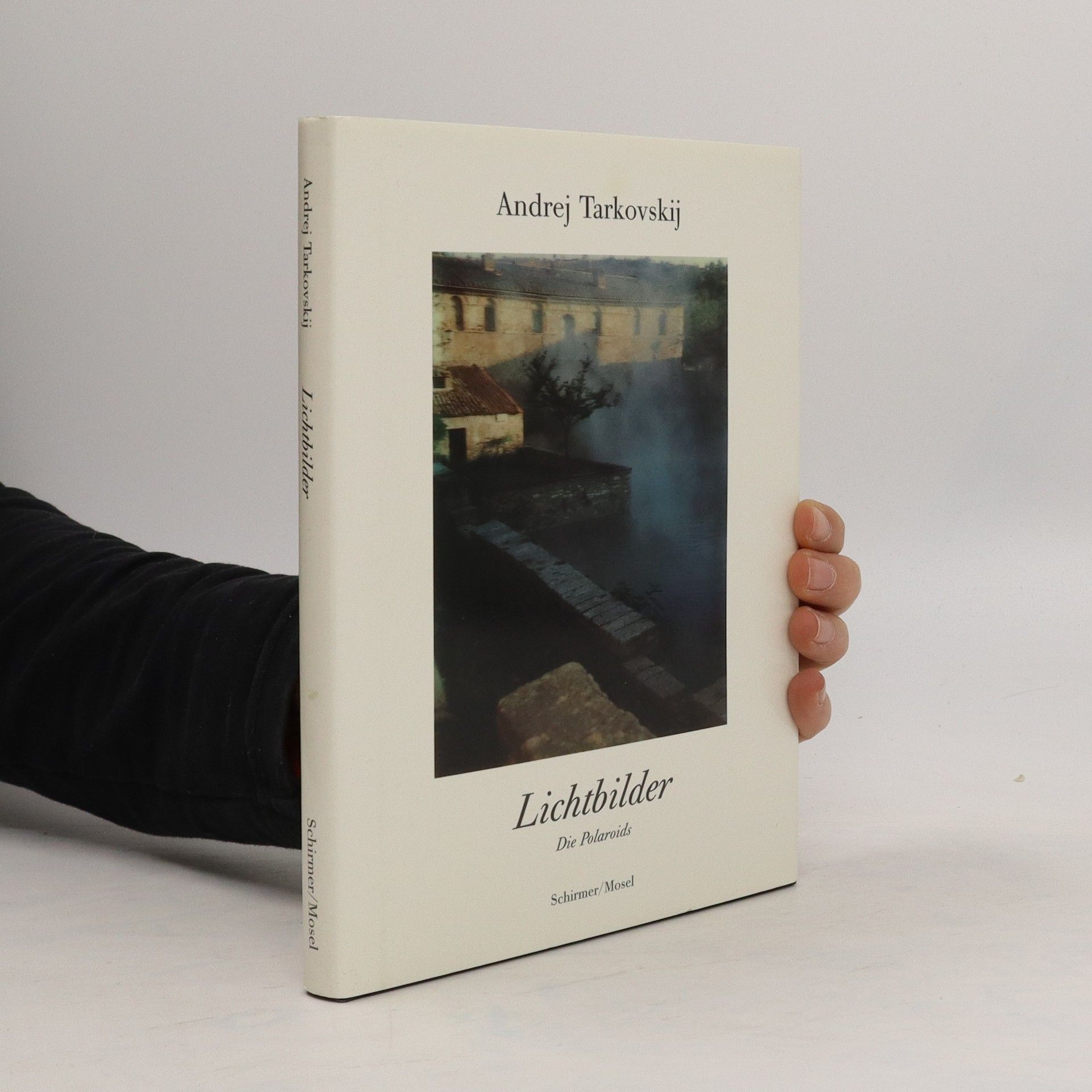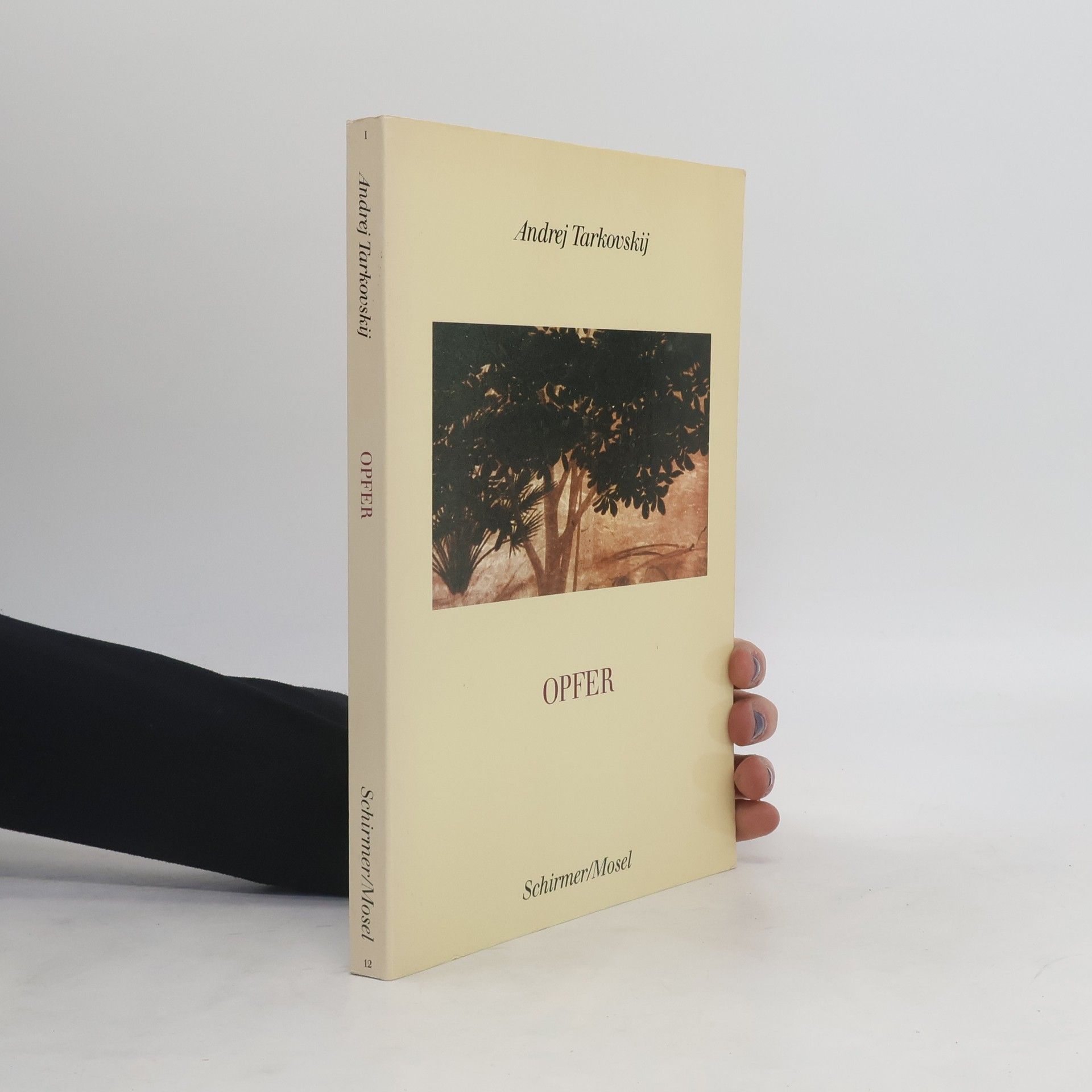Vydání deníku ruského režiséra Andreje Tarkovského je svébytnou zprávou umělce, který poprvé v českém jazyce promlouvá mimo stříbrné plátno.
Andrej Arseňjevič Tarkovskij Knihy

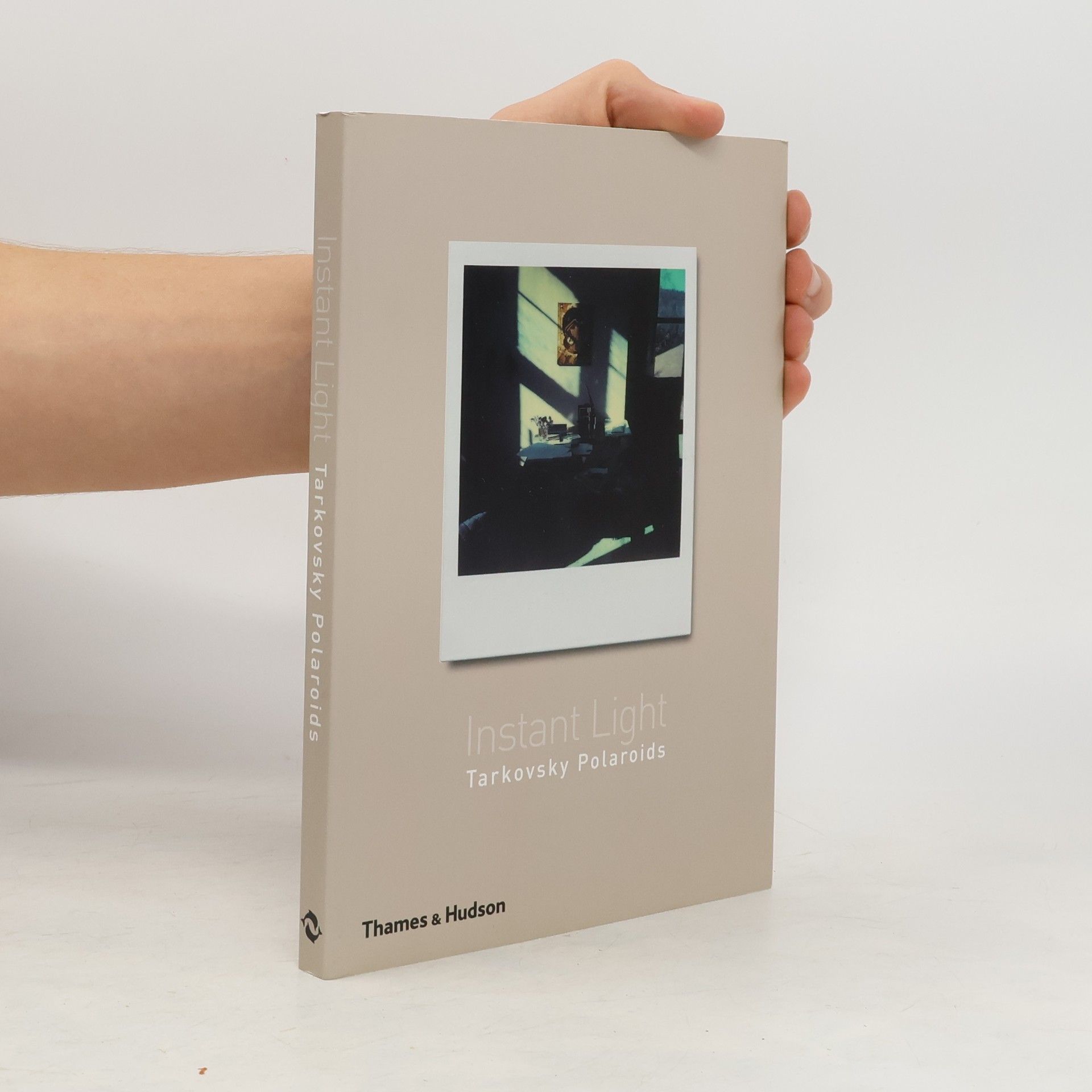

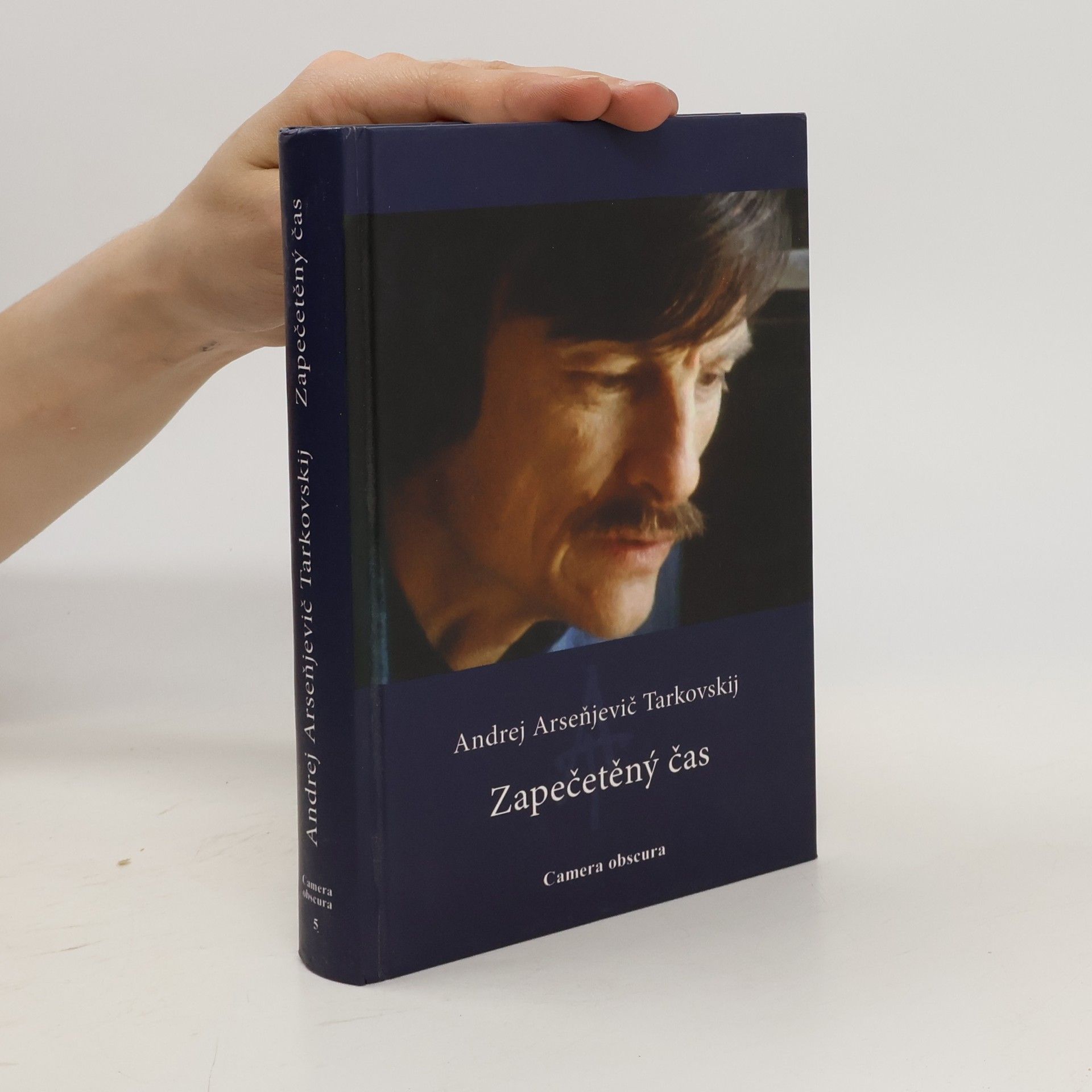
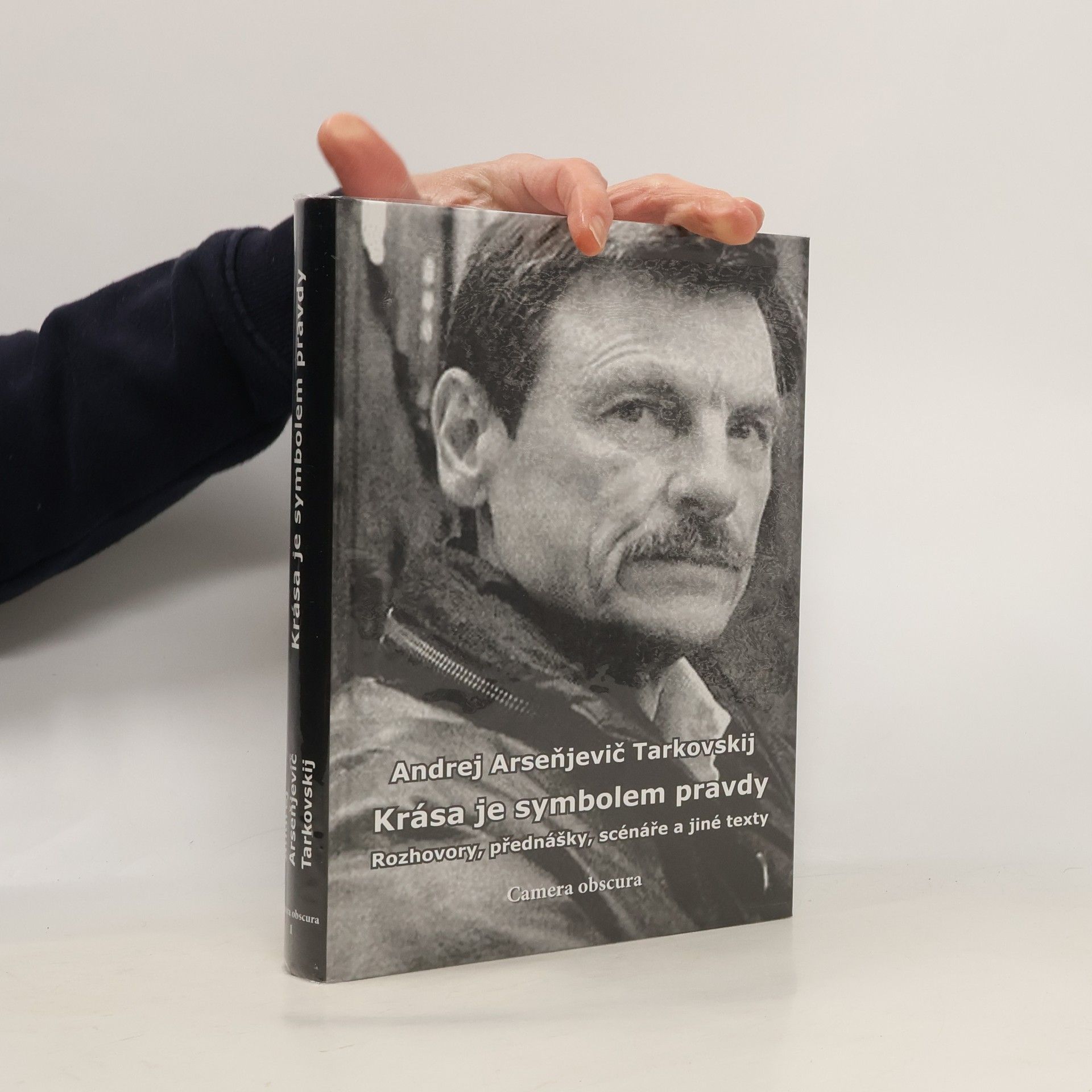
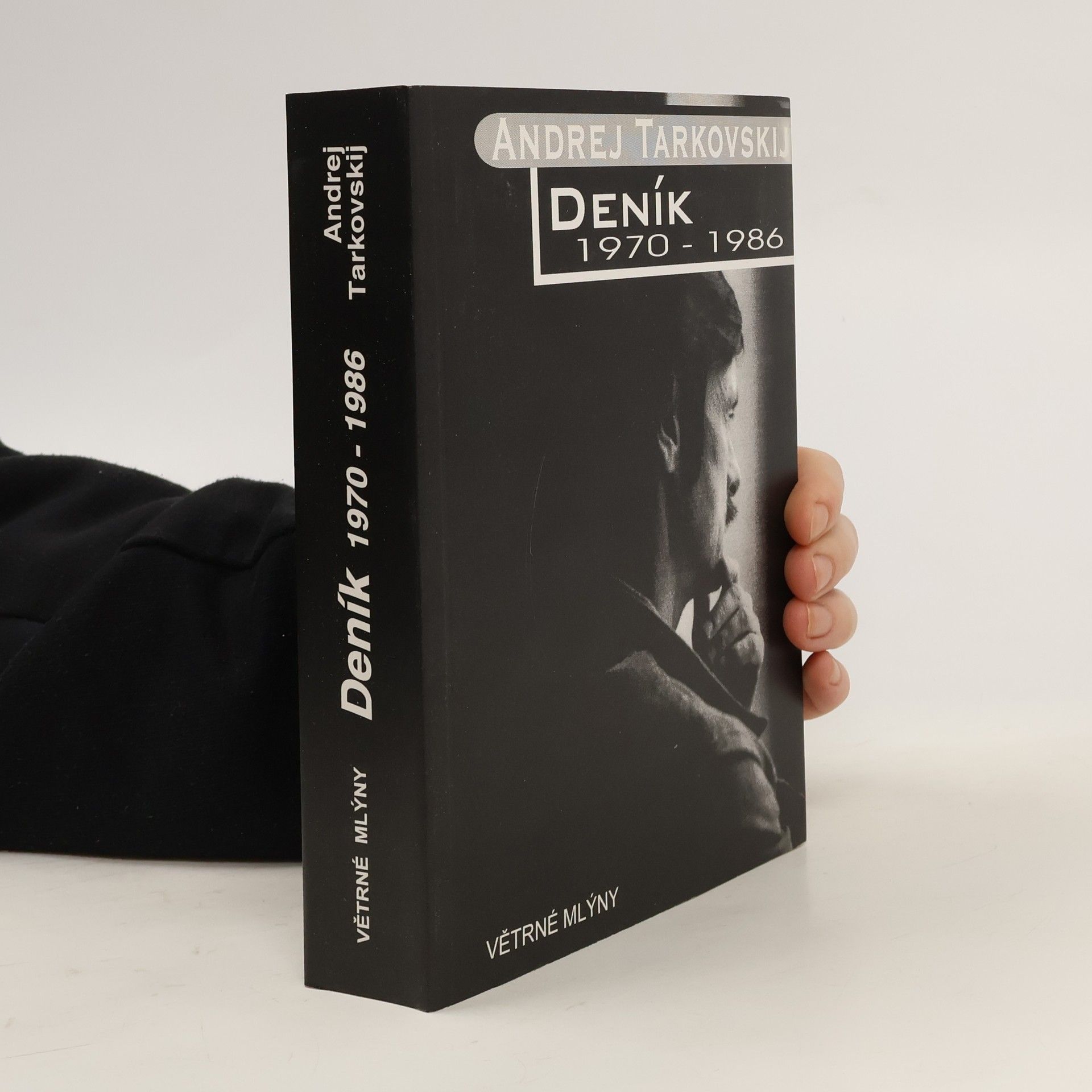
Vydání knihy je výsledkem nezměrného letitého úsilí a je zcela určitě událostí. Její název tvoří okřídlený Tarkovského výrok Krása je symbolem pravdy. Velmi dobře shrnuje všechno to, co v nově vydávané publikaci čtenář najde: rozhovory, eseje, přednášky, korespondenci, filmové scénáře a jiné texty, které Tarkovskij uskutečnil či sepsal v letech 1967—1986. Toto první české souborné vydání zásadních Tarkovského textů přináší nejen to, co bylo v českém odborném tisku (či samizdatu) od Tarkovského publikováno již před lety, ale také řadu nových, do češtiny dosud nepřeložených prací. U starších překladů byla navíc často provedena jejich revize nebo byly do knihy zařazeny v nezkrácené verzi.
Zapečetěný čas
- 355 stránek
- 13 hodin čtení
Jediná filmově teoretická kniha Andreje Tarkovského. Nabízí srovnání s časopiseckou verzí některých svých kapitol v Tarkovského výboru Krása je symbolem pravdy (Camera obscura, Příbram, 2005).
Collected Screenplays
- 500 stránek
- 18 hodin čtení
Since his death in 1986, Andrei Tarkovsky has become increasingly recognized as one of the great masters of world cinema. The book also contains an extended essay by film critic and historian Ian Christie, who places Tarkovsky's work in the context of Soviet film-making practice.
Instant Light
Tarkovsky Polaroids
"Tarkovsky often reflected on the way that time flies and wanted to stop it, even with these quick Polaroid shots. The melancholy of seeing things for the last time is the highly mysterious and poetic essence that these images leave with us. It is as though Andrei wanted to transmit his own enjoyment quickly to others. And they feel like a fond farewell."Tonino Guerra, from the IntroductionThis beautifully produced book comprises sixty Polaroid photographs of Andrei Tarkovsky's friends and family, taken between 1979 and 1984 in his native Russia and in Italy, where he spent time in political exile.The size of the Polaroids is exactly as presented in the book, including the frame. The book may therefore be viewed as a facsimile edition. 60 color illustrations.
Films, stills, polaroids & writings
- 320 stránek
- 12 hodin čtení
Andrey Tarkovsky (1932-1986) is one of the eminent film makers of the 20th century. The five feature films he directed in the Soviet Union-among them Andrei Rublev, Solaris, and Stalker-brought him international fame. Evading censorship and mounting pressure by Soviet authorities, he did not return to the Soviet Union after completing Nostalghia in Tuscany in 1983. His final film, The Sacrifice, was shot in Sweden in 1985. Compiled and edited by Tarkovsky's son Andrey Jr., film historian and critic Hans-Joachim Schlegel, and Lothar Schirmer, our book pays homage to a great visionary who though in poetic and, at times, disturbing images of near-biblical intensity. It features stills and documentary photos from each of his films, a rich selection of Tarkovsky's own writings, private photographs from the family album, as well as Polaroids from Russia and Italy. A compilation of prominent voices who have commented on Tarkovsky's work and personality-including Jean-Paul Sartre, Ingmar Bergman, and Aleksandr Sokurov-rounds out the volume.
Die versiegelte Zeit
Gedanken zur Kunst, zur Ästhetik und Poetik des Films. Ausgabe letzter Hand
Als einer der weltweit visionärsten und einflussreichsten Regisseure drehte Tarkowski bis zu seinem Tod sieben Spielfilme. Seine Gedanken über das Leben, die Kunst und das Kino hielt er in seinem Buch »Die versiegelte Zeit«, das 1984 erstmals auf Deutsch erschien, fest. Darin schreibt er über Regiearbeit, die Rolle des Schauspielers und des Publikums, über Kamera, Musik, Montage und Drehbuch.Die Texte bearbeitete er in einem unermüdlichen Prozess des Verbesserns und Veränderns, der bis wenige Wochen vor seinem Tod anhielt. Die Neuauflage entspricht der Ausgabe letzter Hand, die die Texte erstmals in ihrer vom Autor gewünschten Endgültigkeit aufführt. »Tarkowski ist der Größte.« Ingmar Bergman »Für mich ist Tarkowski Gott.« Lars von Trier
Dej príbehu nás vovádza do prvej štvrtiny pätnásteho storočia, teda do obdobia, v ktorom sa Rusko nestačilo spamätávať raz z plienenia a drancovania Tatárov, inokedy zo vzájomných krvavých rozbrojov samotných ruských kniežat. V tomto nesmierne ťažkom období hľadá zmysel existencie a predovšetkým zmysel umenia maliar ikon Andrej Rubľov a jeho priatelia - učitelia a žiaci. Cesta k pozitívnemu presvedčeniu ne je priama. Rubľov prekonáva dlhú životnú a tvorivú krízu, ale vykúpenie z nej mu opäť dokáže priniesť iba práca pre ľudí.
Lichtbilder
- 135 stránek
- 5 hodin čtení
Polaroids haben etwas ähnlich Magisches wie alte, verblichene Familienphotos oder Bilder, die nur vage in unserer Erinnerung existieren. Wie aus dem Nichts auftauchend, halten sie doch für den Bruchteil eines Blicks die Zeit an und trotzen einer Vergänglichkeit, der sie selbst früher oder später erliegen werden. Andrej Tarkovskij (1932–1986), einer der charismatischsten Filmemacher des ausgehenden 20. Jahrhunderts, liebte dieses magische Spielzeug, das er sich in den späten 70er Jahren zugelegt hatte, und nutzte es weniger zur Vorbereitung seiner Filme als privat, um seine häusliche Umgebung, Stimmungen, Situationen zu fixieren und dem eigenen Gedächtnis einzuspeichern. Nach Stalker, seinem verstörenden Hauptwerk, das 1979 unter enormen Schwierigkeiten fertig geworden war, beschloß er, die Sowjetunion zu verlassen und zunächst nach Italien ins Exil zu gehen. Mit der Polaroidkamera nahm er, so scheint es, Abschied von seiner vertrauten russischen Welt – und eignete sich, wieder in sehr persönlichen, poetisch-flüchtigen Bildern, die neue Umgebung an, Wohnorte und Landschaften vor allem in der Toskana, wo 1983 sein vorletzter Film entstehen sollte: Nostalghia. Wir freuen uns, dieses visuelle und literarische Kleinod jetzt wieder im Programm zu haben.
Opfer
- 191 stránek
- 7 hodin čtení
